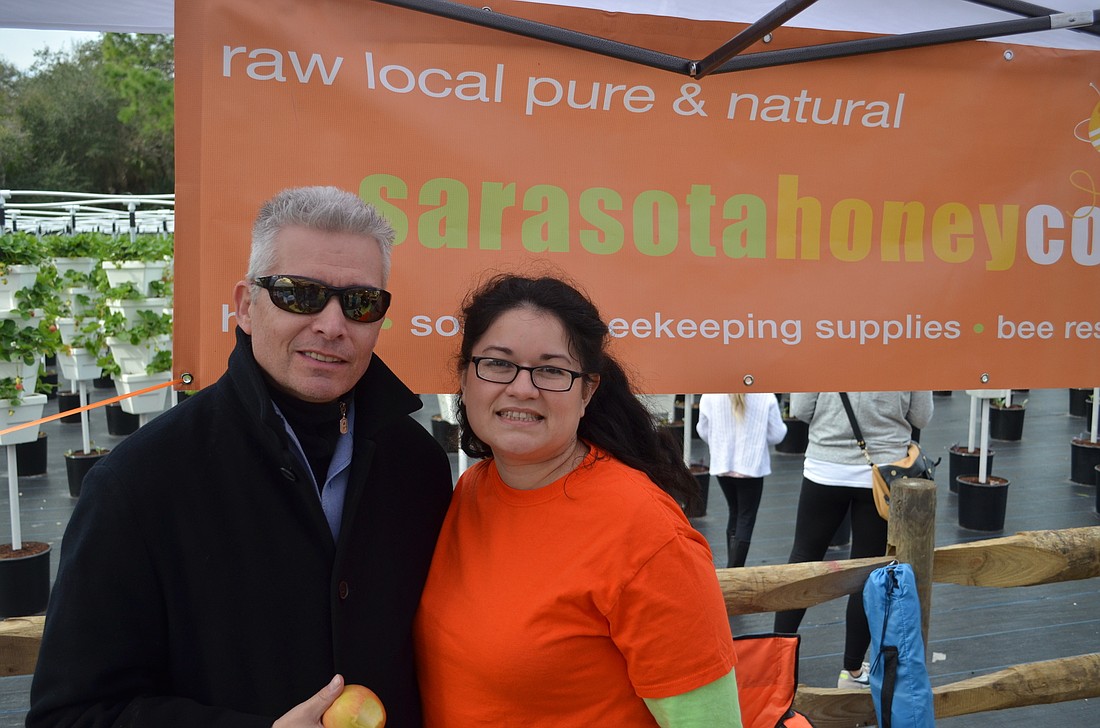- November 24, 2024
-
-
Loading

Loading

Beekeepers have felt the sting of a decline in bee colonies since 2006, both locally and worldwide. The sting was intensified last June when Gov. Rick Scott vetoed $2.5 million to replace the current Honey Bee Research and Extension lab in St. Augustine with the University of Florida’s Honey Bee Research Lab to further research the decline.
Local and state beekeepers want to ensure that research continues on Colony Collapse Disorder, or CCD, (see sidebar) that affects crops and the economy on a global scale.
That’s why Sarasota Honey Co., in partnership with the Suncoast Beekeepers Association, will hold the first Honey Bee Festival to raise money to create the Florida Honey Bee Research Lab to Save the Bees.
With 180 hives located around town, Sarasota Honey Co. is invested in finding ways to keep bees thriving, not just for their honey production but because of the role they play in pollinating local crops and vegetation. Aside from selling goods at farmers markets and festivals, Sarasota Honey Co. hopes to draw attention to the need for further research locally.
“The mix of bees here allow us to do research, and Florida is the nursery for the bees with year-round summer,” said Alma Johnson, Sarasota Honey Co. co-owner and head beekeeper. “That means it can create bees all year round compared to other states with more seasonal changes.”
Sarasota Honey Co. has also partnered with Sweetgrass Farms to share its mission of producing locally grown fruits and vegetables using a hydroponic system and without the use of pesticides that they say harm the bees.
“We’re trying to raise awareness of what’s happening to the honeybees and how pesticides have been a huge problem,” said Kathy Demler, who co-owns Sweetgrass Farms with her husband, Jim.
Demler says the partnership with Sarasota Honey Co. is mutually beneficial.
“They (the bees) are flying around, and they’re functional,” Demler said. “They do their part and make their honey.”